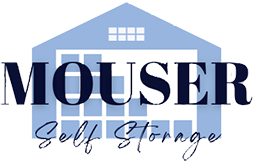At-home self storage is often seen as a convenient and cost-effective solution for keeping personal belongings, but it comes with several drawbacks that many people overlook. While the ability to store items at home eliminates the need for external storage units, there are significant concerns related to security, space, organization, and maintenance that can make it a less-than-ideal option.
We are Mouser Self Storage, serving South Fort Worth, Alvarado, and Johnson County with affordable self storage solutions. Call us at 682-800-3949 for more information.
This article explores the various disadvantages of at-home storage and why alternative solutions might be worth considering.
Limited Space and Clutter with at-home self storage
One of the primary disadvantages of at-home storage is the limited space available in most homes. Unlike storage units that offer ample room for large or excess items, home storage relies on existing closets, garages, basements, or spare rooms. As a result, these areas can quickly become overcrowded, leading to clutter and disorganization.
Over time, excessive storage can make a home feel cramped and unmanageable. This is particularly problematic for people living in smaller apartments or houses, where every inch of space counts. Instead of maintaining a neat and functional living space, homeowners may find themselves navigating around piles of boxes, bins, and miscellaneous belongings that detract from their overall quality of life.
Security Risks
At-home storage also presents security risks that can be concerning, especially when storing valuable or sentimental items. Unlike professional storage facilities for rent, which are often equipped with surveillance cameras, gated access, and climate-controlled environments, home storage relies entirely on the security of the residence, giving less secure self storage than is optimal.
In the event of a burglary, fire, flood, or other disasters, personal items stored at home may be vulnerable to damage or theft. Additionally, storing items in easily accessible areas like garages or sheds can make them prime targets for theft, as these spaces are often less secure than the main living area.
Pest Infestations and Environmental Damage
Improperly stored items at home are susceptible to environmental damage and pest infestations. Basements and attics, common storage areas in homes, are prone to damp conditions that can lead to mold growth, mildew, and water damage. Similarly, garages and sheds can experience temperature fluctuations that may degrade sensitive materials such as wood, paper, or electronics.
Furthermore, stored items can attract pests such as rodents, insects, and termites. Unsealed boxes, fabrics, and even furniture can become nesting grounds for unwanted pests, leading to potential destruction of stored belongings. Unlike storage facilities that implement pest control measures, at-home storage requires diligent upkeep to prevent infestations.
Difficulty in Organization and Accessibility
Another downside of at-home storage is the difficulty of maintaining an organized system for accessing items when needed. Many homeowners store items haphazardly in different locations, making it challenging to retrieve specific belongings without digging through piles of boxes or rearranging an entire space.
This lack of accessibility can be particularly frustrating when dealing with seasonal items, holiday decorations, or important documents that are needed only occasionally. Without a dedicated, well-labeled system, at-home storage can quickly become inefficient and time-consuming to manage.
Increased Risk of Damage
Storing belongings at home increases the risk of accidental damage due to improper handling, stacking, or exposure to the elements. Fragile items can break if stored carelessly, while clothing and fabrics may develop odors or deterioration if not properly protected.
Unlike professionally maintained storage units, which often provide climate control and stable conditions, at-home storage lacks these features. This means that delicate or valuable items—such as artwork, antiques, or important documents—may deteriorate over time due to humidity, temperature changes, or accidental mishandling.
Conclusion
While at-home storage may seem convenient, it presents numerous drawbacks that can impact the security, organization, and overall condition of stored items. Limited space, security risks, environmental hazards, and difficulty in accessing belongings make at-home storage less practical for those with significant storage needs.
For individuals looking to store valuable or excessive items safely, professional storage units or alternative solutions such as digital storage for documents, minimalistic lifestyles, or decluttering techniques might be better long-term options. Taking these factors into account can help ensure that belongings remain protected and homes stay organized, reducing the stress and inconvenience associated with inefficient at-home storage.
A final word about Mouser Self Storage
Mouser Self Storage and our sister company, Blue Mound 287 Self Storage, are locally owned and operated. Call and ask us about car storage, RV self storage, boat storage units, small hobby shops, and traditional storage for your household possessions.

